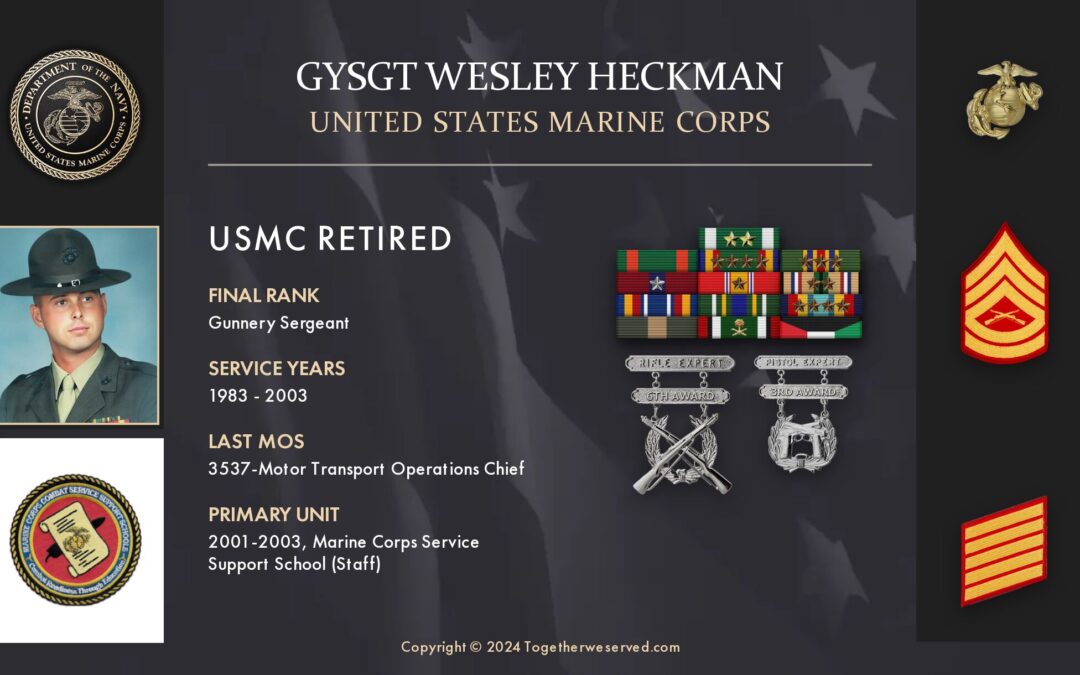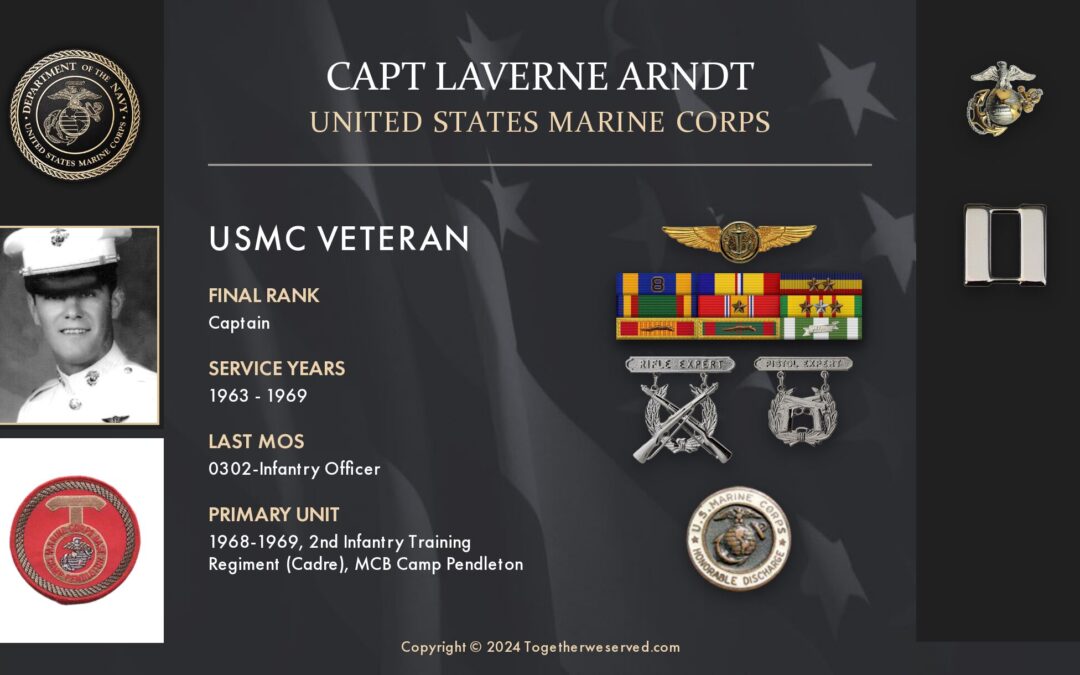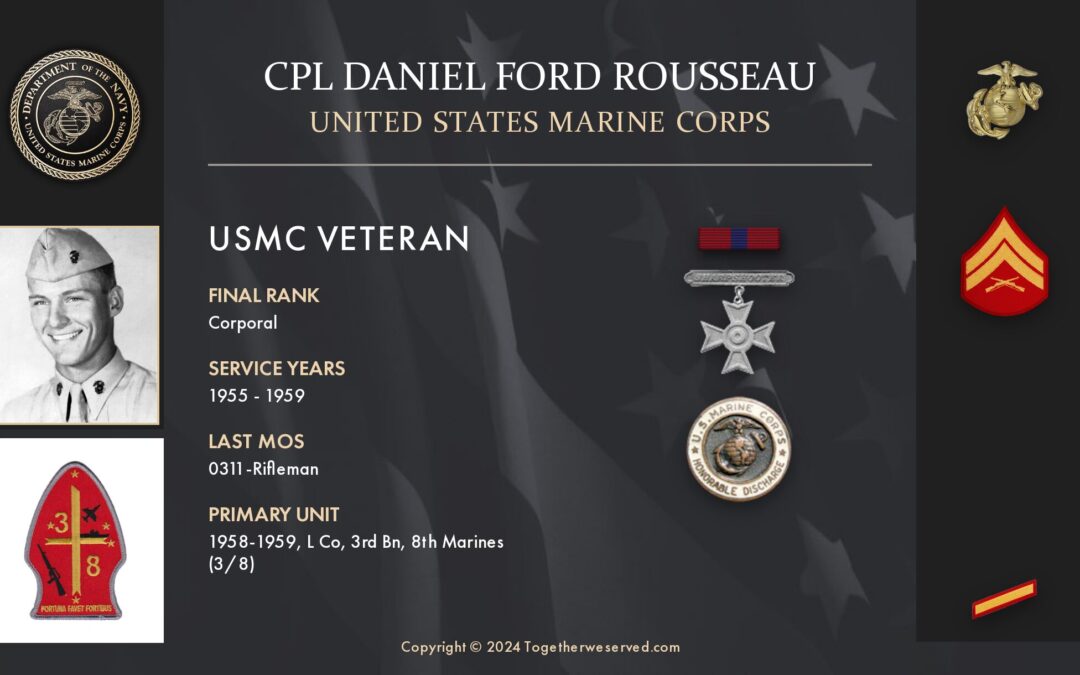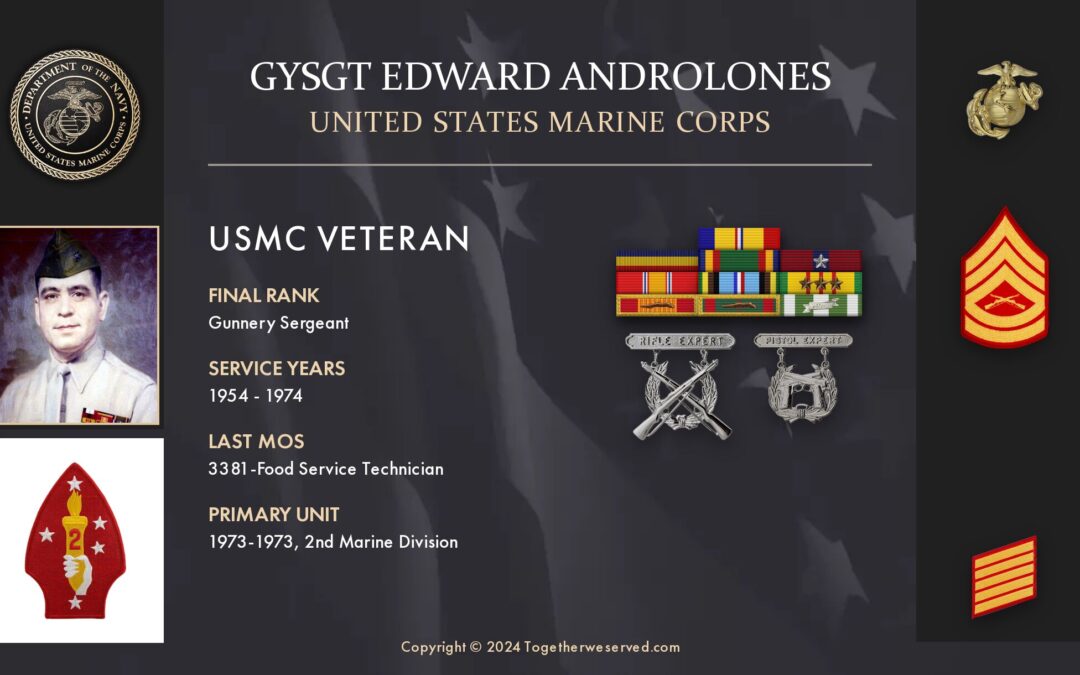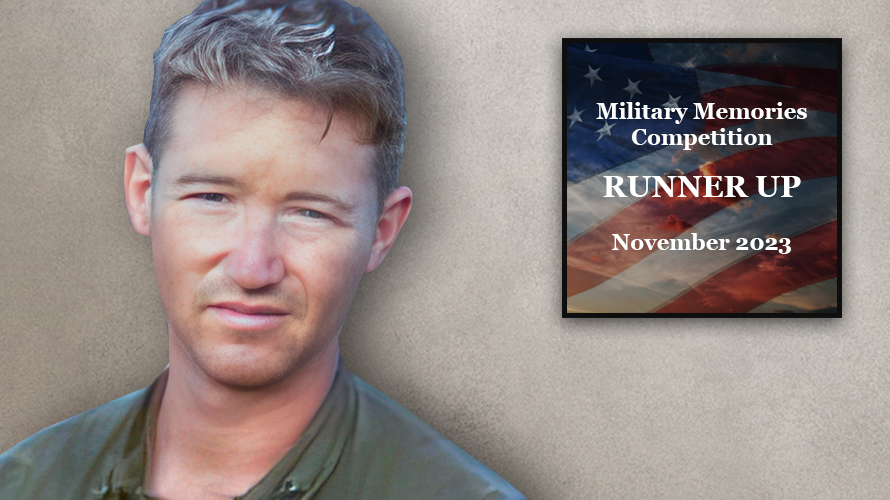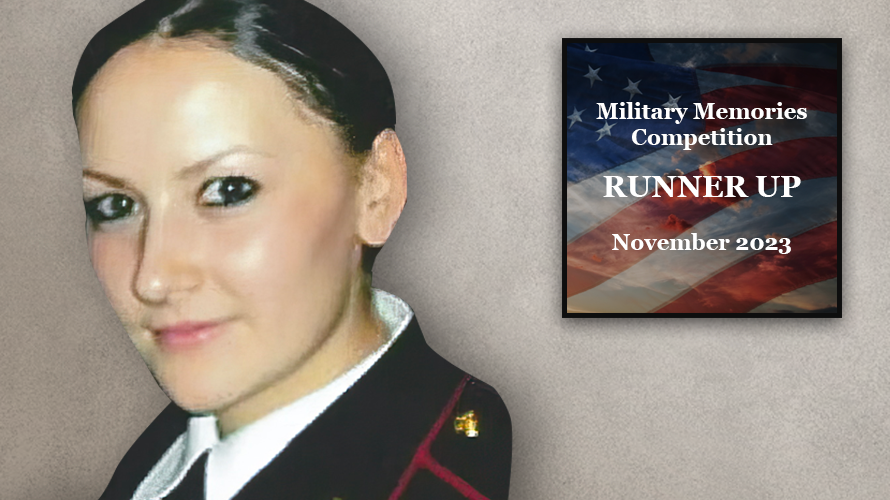My father was the biggest influence on me to join. Although he never once said anything to me about joining the Marine Corps, he never went to the recruiter with me. The only statement he made to me was…
1. “Boy, if you want your driver’s license at 16, you need to get a job, buy a car, and insurance. Then you can get your license.”
2. ” When you turn 18, you are going to have to get out of MY house or pay rent” That was his philosophy. I bought a 1965 Malibu from our next-door neighbor for $500.00; my mother was the bank, payments were established, and at 18, I was in the Corps.
I was born at Camp LeJeune. My brother at Portsmouth, Va, and my sister at New Port, RI. When my father went to Viet Nam we lived near my Grandparents in Pittsburgh, PA. When he returned, he got I&I duty in Providence, RI, and we lived at Quonset Point, RI. When he had to spend the night as Staff Duty NCO, he would often take me along to hang with him, which was really great during Xmas, you know, Toys For Tots. Back then, you donated any toy, used or new. So the corner of the Shop was filled with toys, and I tested them before they were distributed.
I remember riding with him in a 5-ton, taking Marines to the airstrip. Later in my career, I asked him about those rides. We were hauling Marines to begin deployment to Viet Nam. From there, we moved to Parris Island, and for the next six years, it was boot Camp. It was a different time there as well. We saw a lot of training and got to do a lot. Once or twice I ran obstacles on the Confidence Course or climbed the O course rope to prove to young recruits “a child can do it.” I loved it. So without a word from my father, he showed me his love of the Corps, which I chose as well. Our favorite movies to watch together were John Wayne in the Sand of Iwo Jima, The Great Santini, and The Boys in Company C.
